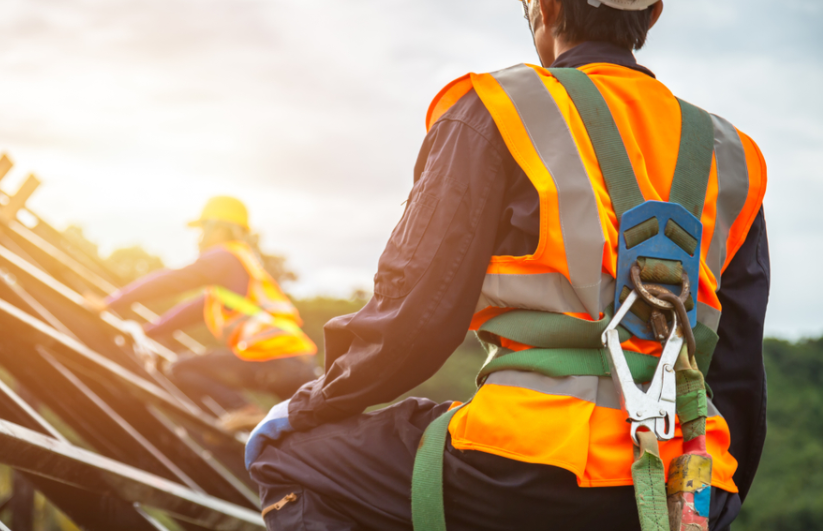The construction industry has employed more than 6.5 million people in the U.S. While many employees depend on these tasks for a living, construction workers are exposed to endless safety hazards. Construction work typically involves using heavy equipment and dangerous site conditions that require careful navigation. According to the NYC Department of Buildings records, nine construction workers suffered fatalities, and 514 were injured in NYC in 2021.
A slight negligence or machine errors can lead to dangerous and potentially fatal accidents. According to OSHA, the construction industry has the highest rate of fatal injuries than other industries. The agency has developed several construction site regulations to minimize construction site accidents.
These standards also guarantee victims of construction accidents compensation from their employers and insurers. If you’re a Manhattan resident and have sustained construction site injuries, consult a Manhattan construction accident attorney for guidance on processing your claims.
That said, below are the common dangers facing construction site workers:
1. Falls from heights
Falls are the number one cause of fatalities in construction sites. According to the HSE, more than 47% of construction site fatalities are attributed to falls from heights. Falls in construction sites often result from unstable surfaces, ignoring fall protection measures, and human error. While falls can occur in different situations, they mostly result from slips from ladders.
Ideally, employees should be trained to work from high surfaces. Safety precautions, like using safety nets or guard rails, should also be observed n construction sites to ward off the danger of accidents. Adhering to OSHA guidelines, such as regularly inspecting construction site equipment, can prevent ladder falls.
2. Excessive noise
Nearly all equipment used in construction sites generates a lot of noise. Prolonged exposure to such noise can cause hearing difficulties and permanent hearing loss to construction workers. Hearing loss may result from repeated exposure to mid-range noise levels or one powerful explosion.
OSHA standards note that exposure to more than 85 decibels of noise for eight hours or more causes hearing damage. Construction workers can lose their hearing abilities from exposure to 100 or more decibels only for one hour. Construction equipment with high noise levels includes:
- Chainsaw – 110 decibels
- Scraper or grader – 107 decibels
- Jackhammer – 102 decibels
- Bulldozer – 100 decibels
- Nail gun – 97 decibels
- Belt sander – 90 decibels
Other construction equipment produces more than 85 decibels of noise. As such, construction workers should use hearing protection devices to protect their hearing health.
3. Airborne and material exposure
Construction workers, especially those working in excavation sites, are exposed to various respiratory hazards. They can also come into contact with dangerous materials, such as:
- Asbestos: Construction sites are full of dust, and employees can easily ingest contaminated particles. Even though few current construction materials contain asbestos, workers tasked with the demolishment or renovation of old structures are at risk for exposure.
- Lead: Employees in excavation and demolition sites can easily inhale lead-laden dust. Lead is primarily found in roofs, tank linings, paint, and cornices. While lead-containing paint and construction materials were banned for residential use, they are still used in railways, bridges, and steel structures to prevent corrosion.
Chromium, cadmium, and silica dust are other airborne hazards present in construction sites. Like noise and other health hazards, personal protective devices can shield workers from these exposures.
4. Struck-by accidents
As the name suggests, these accidents occur when a construction worker is hit by a construction machine, falling, or flying objects. Surprisingly, one in every four struck-by fatalities occurs in construction sites, with 75% of them involving heavy equipment, such as cranes and trucks.
Such accidents can occur when:
- A construction worker is pinned between the wall and a construction equipment
- A worker is caught under an overturning vehicle
- A construction worker is struck by a swinging backhoe or any other heavy equipment
Construction site workers are also at risk for struck-by accidents caused by falling objects, especially if they are working under scaffolds or cranes. Power tools and construction activities that cause objects to become airborne can also easily cause flying accidents. Protective gear and proper training can help minimize these risks.
The Bottom Line
Construction activities are very vital but expose workers to immense dangers. Construction site conditions, such as slips, falls, burns, and material handling incidents, cause serious injuries that can become fatal. Similarly, environmental conditions, such as airborne pollutants and excessive noise, expose workers to various health risks.

